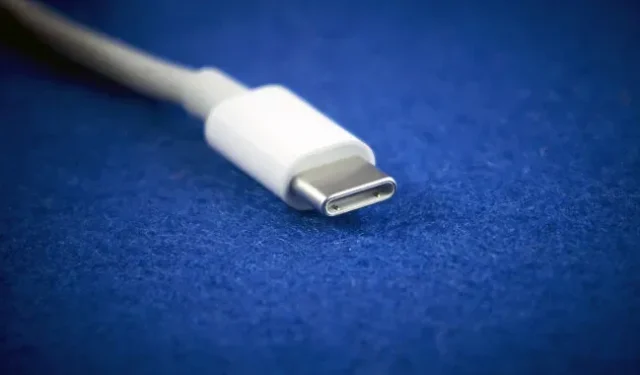USB-C mandate moving forward in EU, wireless charging regulation could follow

The European Union is moving forward with legislation requiring USB-C charging for various consumer electronics. The EU Parliament today formally approved the agreement that it and the EU Council agreed on in September. The agreement must then be formally approved by the Council of the EU, after which it will be published in the Official Journal of the EU.
Parliament’s announcement confirmed the timeline and additional affected device categories. Legislation requires a USB-C port on all phones, tablets, digital cameras, headphones, headsets, portable speakers, handheld game consoles, e-readers, keyboards, mice. and navigation systems sold in the EU use wired charging and support up to 100W power delivery “by the end of 2024,”Parliament said in a statement.
Laptops will be required to have USB-C charging “from spring 2026,”the announcement said.
The legislation also requires all fast-charging devices to use the same charging speed. This rule will be enforced with “special labels”describing charging capabilities.
Once the rule is published, EU member states will have one year to transpose the rules and then another year to comply with them. The law only applies to products released after this time period.
Parliament said the vote passed by 602 votes to 13 with eight abstentions.
Wireless charging rules can follow
When the EU announced plans to introduce a USB-C charging requirement in September 2021, some critics, including Apple, said such regulation could hinder innovation. The European Commission has said it will work with vendors to adapt its rules to new technologies if they deem the technology worthy. For example, the EU mandate for universal charging may one day require a different type of charging than USB-C.
Showing some forward thinking, the EU parliament’s statement briefly mentions wireless charging, although it doesn’t indicate how the EU government might try to regulate it.
“…The European Commission will have to agree on compatibility requirements by the end of 2024 to avoid negative impacts on consumers and the environment,” Parliament said in a statement. “It will also get rid of the so-called technological blocking effect, when the consumer becomes dependent on one manufacturer.”
Wireless charging is one possible way around EU USB-C requirements for companies that are strongly opposed to using this technology in their products, such as Apple and its iPhone. While there have been rumors about Apple making the iPhone with USB-C, the company prefers its Lightning connector, and while EU law doesn’t ban a proprietary connector, it will require USB-C. However, an iPhone solely dependent on wireless charging would be impractical due to cost, data transfer issues, and case durability. Also, it looks like the EU government may eventually regulate wireless charging as well.
Be that as it may, the current iPad Air, iPad Mini and iPad Pro charge via USB-C instead of Lightning, so Apple has already shown its willingness to use an oval-shaped connector.
“Sustainable Choice”
A parliamentary statement reaffirmed the EU government’s goals of reducing e-waste and “enabling consumers to make more sustainable choices”with the USB-C mandate.
The governing body believes that the law “will lead to more reuse of chargers and help consumers save up to 250 million euros a year on unnecessary purchases of chargers.”
“Discarded and unused chargers account for around 11,000 tons of e-waste (PDF) in the EU every year,” it said.
Following the example of the EU, other parts of the world have started looking into how they regulate electronics charging. Brazil is considering a USB-C policy for phones and has banned iPhones from being sold without a charger while encouraging Apple to implement USB-C charging. US lawmakers are also pushing for a universal charger policy.
Leave a Reply